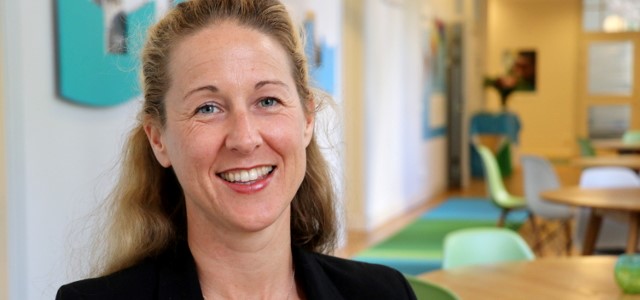"ISF-UTS is a research consultancy focused on sustainable futures, and this includes a large focus on water issues – both in Australia and internationally. We also conduct work on energy futures, food systems and circular economy, renewables, and more. We support organisations with research, strategy and facilitation on this broad range of sustainability issues and do this by drawing on our academic expertise, and industry experience” explains Melita.
Her role is as Research Principal, specialising in water resources management (WRM) and water, sanitation and hygiene (WASH) in international development, with a focus on equity and inclusion. Melita and colleagues at ISF-UTS - were engaged by GWP to conduct research comprising three key components: a scoping study, a high-level workshop. and a think piece.
“We were asked to identify the key issues in water resources management related to gender equality and inclusion. By conducting a literature review on the key issues, we found that there’s a lot of literature in the WASH space, in terms of how gender issues have been considered in WASH programming, however, there is not as much in the water resources management space – within areas such as irrigation, transboundary watershed management, water governance, and integrated water resources management (IWRM),” says Melita.
Talking to Experts
But she says there are some good examples, reviews and evaluations on how water governance has been made more equitable, gender sensitive, and more inclusive. She identified and drew out these key concepts and issues in the scoping paper.
“We also interviewed 14 leaders around the world – leaders within water resources management, WASH, and gender equality. We asked them a series of questions around what they think the top three issues are that need to be addressed to achieve more equitable water resources management around the world. The answers were compiled into the scoping study.” The top six issues raised by interviewees and found within the literature review were:
- Participatory processes with a focus on inclusion are necessary. Unintended consequences (such as increasing women’s unpaid work/overall work load) need to be avoided.
- Gender equality and inclusion policies and strategies need to be resourced, and institutions made responsible for enacting them are held accountable.
- Discriminatory polices and practices exist, including on who can and can’t control resources (including land and water). These policies and practices need to be identified, and changed so that no one group dominates over another.
- Women’s leadership in water management institutions needs to be supported; all people need access to training and development opportunities; and the male dominance of water related institutions needs to be challenged and changed.
- Monitoring, evaluation, and learning must be improved at the organisational level; the knowledge and evidence base on what works to drive gender equality and inclusion needs to be strengthened.
- The connections between domestic water, sanitation and hygeine (WASH), and broader water resources management are evident from the water cycle. These domains needs to be better connected. Cultural differences around how water is used and by whom need to be better considered.
The scoping study also identified the key incentives and disincentives related to incorporating gender equality considerations in water management policies and programs, and canvassed the key actors working to drive equality within their institutions. The Scoping Study will be available from the GWP website in the coming weeks.
The next step was the workshop in Stockholm, which involved 25 people from around the world. They discussed the scoping study and its findings, and provided a platform to share case studies and experiences of mainstreaming gender into programs and institutions.
“The participants all had something unique and important to contribute to the conversation on gender equality in water resources management – coming from a range of organisations such as the World Bank, bilateral aid organisations, NGOs, and global partnerships,” says Melita. She summarizes some of the talking points in this clip:
The workshop also facilitated a discussion on the major challenges that the participants perceive to be in the way of taking transformational approaches to making water management, as Melita explains:
Think Piece
The third and final phase of the project is to produce a strategic think piece, capturing clear and practical actions that can be applied to turn theory into practice. This is expected to be published in August, and launched by GWP at World Water Week in Stockholm.
“This is going to be a concise document which any person working within water resources management can pick up and help guide them to take the first steps to ensure that gender equality is driven through their organisations and projects, and that inclusive practices are no longer “add-ons”, but become core business. The economic, social, and environmental benefits of designing and delivering water management projects in ways that benefit whole communities, and improve equality within societies are enormous,” says Melita.

